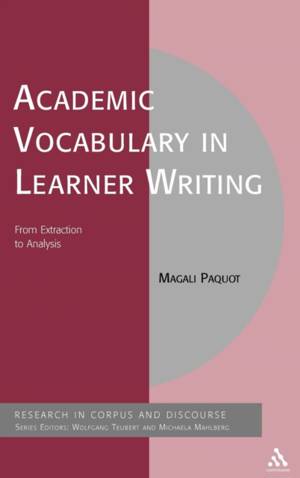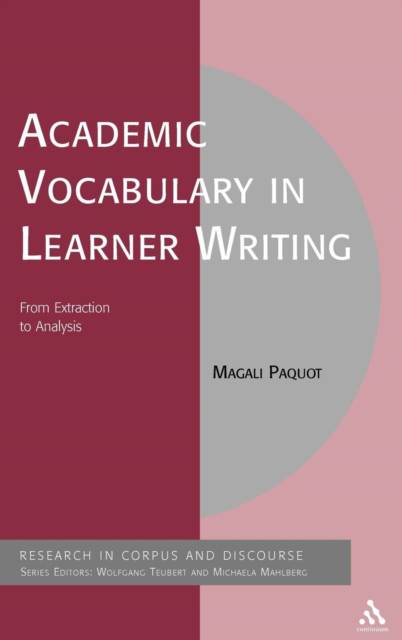
- Afhalen na 1 uur in een winkel met voorraad
- Gratis thuislevering in België vanaf € 30
- Ruim aanbod met 7 miljoen producten
- Afhalen na 1 uur in een winkel met voorraad
- Gratis thuislevering in België vanaf € 30
- Ruim aanbod met 7 miljoen producten
Zoeken
€ 390,45
+ 780 punten
Uitvoering
Omschrijving
Academic vocabulary is in fashion, as witnessed by the increasing number of books published on the topic. In the first part of this book, Magali Paquot scrutinizes the concept of 'academic vocabulary' and proposes a corpus-driven procedure based on the criteria of keyness, range and evenness of distribution to select academic words that could be part of a common-core academic vocabulary syllabus.
In the second part, the author offers a thorough analysis of academic vocabulary in the International Corpus of Learner English (ICLE) and describes the factors that account for learners' difficulties in academic writing. She then focuses on the role of corpora, and more particularly, learner corpora, in EAP material design. It is the first monograph in which Granger's (1996) Contrastive Interlanguage Analysis is used to compare 10 ICLE learner sub-corpora, in order to distinguish between linguistic features that are shared by learners from a wide range of mother tongue backgrounds and unique features that may be transfer-related.Specificaties
Betrokkenen
- Auteur(s):
- Uitgeverij:
Inhoud
- Aantal bladzijden:
- 256
- Taal:
- Engels
- Reeks:
Eigenschappen
- Productcode (EAN):
- 9781441130365
- Verschijningsdatum:
- 23/09/2010
- Uitvoering:
- Hardcover
- Formaat:
- Genaaid
- Afmetingen:
- 157 mm x 234 mm
- Gewicht:
- 566 g

Alleen bij Standaard Boekhandel
+ 780 punten op je klantenkaart van Standaard Boekhandel
Beoordelingen
We publiceren alleen reviews die voldoen aan de voorwaarden voor reviews. Bekijk onze voorwaarden voor reviews.








